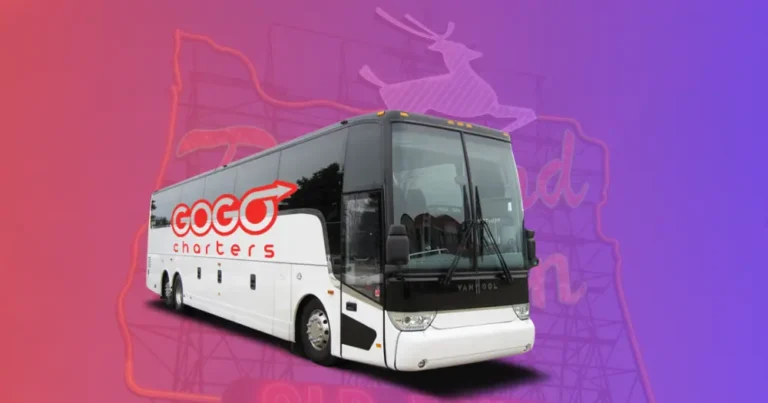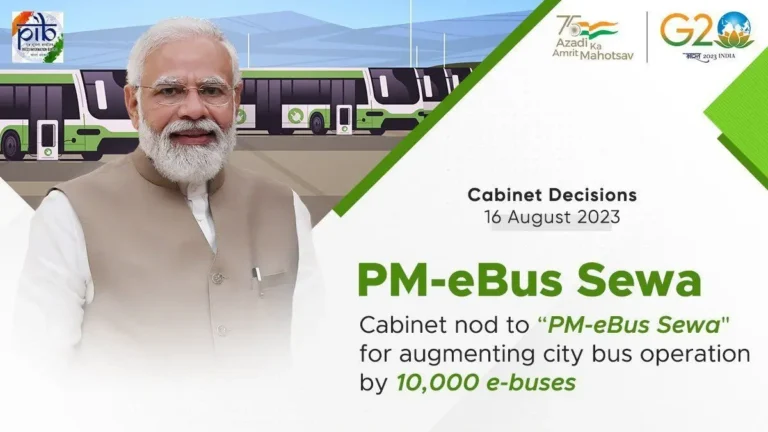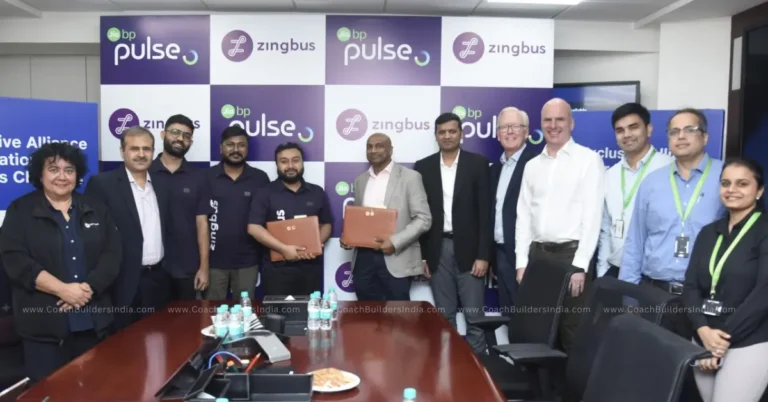Transdev Blazefield Invests £21 Million in Electric Buses and Depot Upgrades

Transdev Blazefield, a prominent bus operator in Northern England, has confirmed its commitment to sustainability with a substantial investment of £21 million.
This investment includes orders for 39 new buses and the necessary equipment to convert its Harrogate fleet to fully electric power.
The investment is bolstered by £7.8 million in funding from the UK Government’s Zero Emission Bus Regional Areas (ZEBRA) program. The ZEBRA program aims to bolster the adoption of electric buses in the UK.
It has been secured through a successful bid by Transdev’s partner, North Yorkshire Council. This funding signifies a collective effort to transition towards greener transportation solutions.
Transdev Blazefield’s Trials and Passenger-Centric Approach
Prior to these orders, Transdev Blazefield conducted successful trials involving various types of all-electric buses on multiple routes in and around Harrogate.
The feedback from customers was instrumental in shaping the specifications for the new bus orders, emphasizing a passenger-centric design.
Henri Rohard, Managing Director of Transdev Blazefield, expressed enthusiasm for the depot and bus electrification project.
He highlighted that the entire bus fleet serving Harrogate will be renewed, resulting in a modernized and passenger-oriented network. The project’s realization owes much to the substantial support received from the government’s ZEBRA fund.
We’re delighted to launch our depot and bus electrification project. It is an important evolution in the quality and sustainability of our network in and around our home town of Harrogate. The project has been made possible thanks to the significant support from the government’s ZEBRA fund.
Richard Holden, Parliamentary Under Secretary of State for Roads and Local Transport
Buses to be Delivered by Mercedes-Benz and Alexander Dennis
Transdev will collaborate with two suppliers, Mercedes-Benz, and Alexander Dennis, to build their new fleet. This collaboration includes training and upskilling Transdev’s in-house engineering teams to ensure the optimal performance of their all-electric bus transformation.
In addition to the eight Harrogate Electrics-branded Volvo 7900E electric buses already in service, the forthcoming 39 fully-electric vehicles, expected by Spring 2024, will significantly contribute to a more sustainable transportation network.
The fleet is expected to consist of 20 Mercedes-Benz eCitaro single-deck buses and 19 Alexander Dennis Enviro400EV (ADL Model) double-deckers.
The 20 eCitaro buses are set to be deployed on Route 1 (connecting Harrogate to Knaresborough), Route 7 (linking Harrogate and Leeds), and the rural Route 24 (connecting Harrogate to Pateley Bridge).
Additionally, the 19 Enviro400EV buses will be dedicated to the prominent “flagship” Route 36, which spans between Ripon, Harrogate, and Leeds.
The utilization of advanced batteries allows these buses to cover longer distances between charges, and they will also benefit from top-up charges at Harrogate Bus Station to ensure consistent service reliability.

Government Support For Sustainable Progress
The initiative has garnered support from North Yorkshire Council, which successfully secured funding along with 11 other local authorities to assist in the introduction of Transdev’s zero-emission electric bus fleet.
This partnership contributes to North Yorkshire Council’s efforts to advance its climate goals.
UK Roads Minister Richard Holden commended Transdev’s decision to electrify its Harrogate fleet and the associated order of 39 electric buses.
We’ve awarded £330 million of dedicated funding for zero-emission buses in England, excluding London, as we continue in our quest to decarbonise transport and reach net zero by 2050.
Richard Holden, Parliamentary Under Secretary of State for Roads and Local Transport
He noted that this commitment aligns with the UK’s goal to achieve net zero emissions by 2050. The government’s dedicated funding for zero-emission buses underscores their dedication to decarbonizing transport.
Transdev Blazefield’s investment and partnership efforts signify a substantial step towards a greener and more sustainable future for bus transportation in Northern England.
Zero Emission Bus Regional Areas (ZEBRA) to Increase Electric Buses in The UK
The UK government’s Zero Emission Bus Regional Areas (ZEBRA) programme is an initiative aimed at accelerating the adoption of zero-emission buses across various regions in the country.
The program provides funding to support the deployment and operation of electric buses in specific regions, with the goal of reducing greenhouse gas emissions, improving air quality, and promoting the transition to more sustainable public transportation options.
ZEBRA funding is allocated to local authorities and bus operators through a competitive bidding process. These funds are intended to assist in the purchase of zero-emission buses, as well as the necessary infrastructure such as charging infrastructure and depot upgrades.
The program is part of the UK government’s broader commitment to reducing carbon emissions and achieving its climate targets.
By incentivizing the adoption of electric buses and investing in the necessary infrastructure, the ZEBRA programme contributes to the UK’s efforts to address air pollution and climate change while promoting the development of cleaner and more efficient public transportation systems.
Catch the latest Bus Industry updates, Exclusive Interviews, Bus News, and International Bus News on Coach Builders India. Download the latest issue of the The Bus Insider magazine for more insights.







